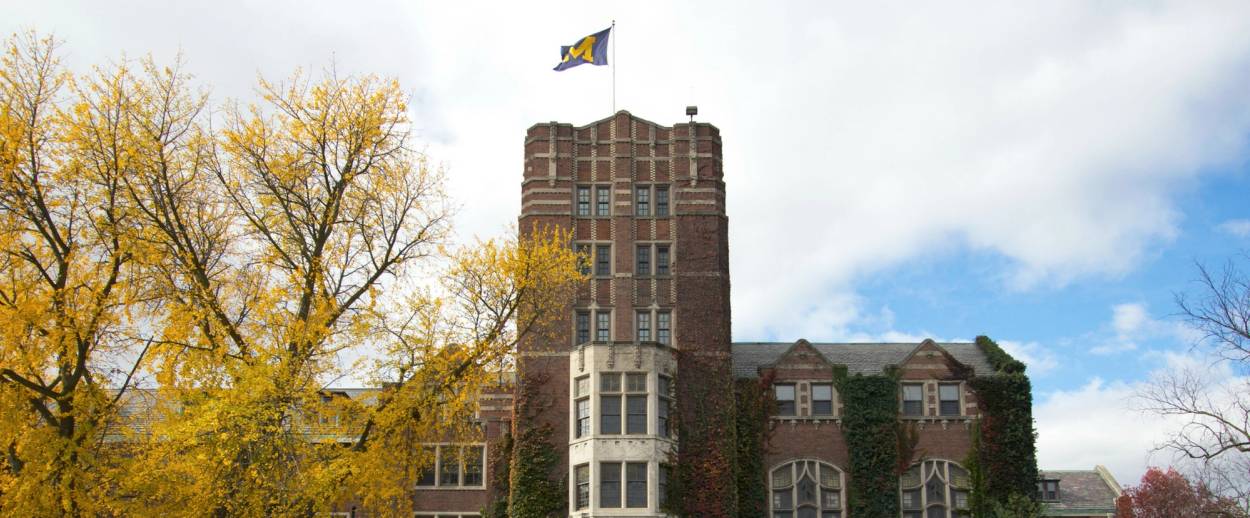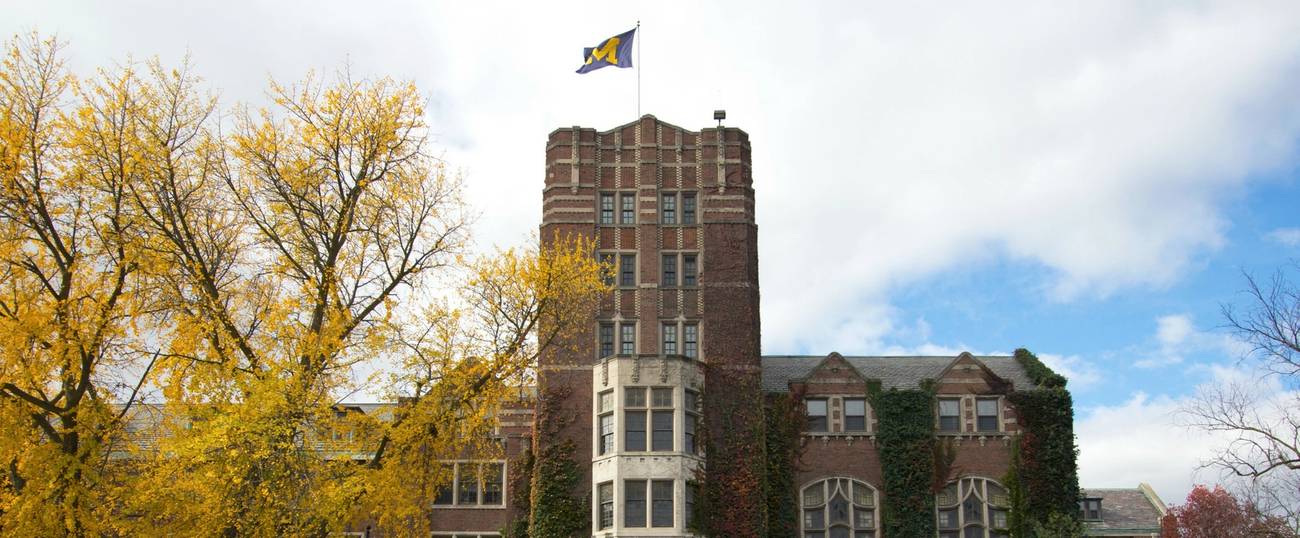In recent weeks, the University of Michigan has been rocked by a series of scandals relating to Israel and anti-Semitism. In mid-September, John Cheney-Lippold, an associate professor, denied a letter of recommendation to a Jewish student that he had initially agreed to write, after learning that she intended to use it to study abroad in Israel. On Oct. 4, Emory Douglas, an outside speaker at a mandatory campus lecture, compared Hitler to Israeli Prime Minister Benjamin Netanyahu, splashing the words “guilty of genocide” across their faces on a presentation slide. And this past week, Lucy Peterson, a graduate student instructor, similarly denied a letter of recommendation to another Jewish student because he sought to study in Israel.
These incidents caused a firestorm on campus and unsurprisingly brought the university under heavy criticism. Refreshingly, the institution’s leadership quickly responded in a forceful manner that upheld the principle of academic freedom across the board. The statement issued on Oct. 9 by Michigan’s president and provost, though not perfect, is a model for other universities who will no doubt be faced with similar challenges. Here’s why:
1. The university leadership condemned and punished the professor who denied a letter of recommendation to a student, simply because she sought to study in Israel:
Withholding letters of recommendation based on personal views does not meet our university’s expectations for supporting the academic aspirations of our students. Conduct that violates this expectation and harms students will not be tolerated and will be addressed with serious consequences. Such actions interfere with our students’ opportunities, violate their academic freedom and betray our university’s educational mission.
Such criticism was deserved. After all, if any professor were to refuse to provide letters of recommendation to all students seeking to study in Iran or Egypt, their conduct would rightly be condemned as discriminatory. The Jewish state should be no exception. Moreover, such an effort does not just impinge on the academic freedom of Israeli universities. It effectively imposes a professor’s political views on a student, denying them their academic freedom to study where they wish. No serious defender of academic freedom could allow such conduct to stand, and Michigan did not.
2. At the same time, the university defended the deeply offensive comparison of Netanyahu to Hitler, which declared them both “guilty of genocide,” as protected under the umbrella of academic freedom:
For our university to fulfill its role as a place for discovery, growth and increased understanding of the complex world we serve, speakers must be free to express their ideas even when they might be offensive. And all members of our community must be free to express their own ideas in response.
This was also the right call. While it is reasonable to debate whether the speaker should have been invited to campus in the first place, once he was, his words fell under the traditionally wide academic latitude granted to lecturers to provoke and challenge their listeners. Without this protection, speakers would not be able to broach deeply controversial subjects on campus without fear of sanction.
3. Crucially, however, the university leaders did not stop with their defense of the speaker’s right to offend. They also expressed regret for his words:
Hitler and the genocide that he led, however, represent a horrific level of evil with few if any parallels in human history. We understand how these images are offensive, particularly in this case to Jewish students. We are sorry students were hurt by this experience.
This step is particularly praiseworthy. Many universities, when confronted with bigotry from speakers on campus—including white supremacists and anti-Semites—use academic freedom as a shield to avoid engaging with the subject matter. They assert that the speaker’s words are protected but “do not necessarily represent the views of the university,” and leave it at that. But of course, if an offensive speaker has academic freedom to say bigoted things, so does the university to call out that bigotry. The claim that Israel has committed genocide is demonstrably false. In fact, the Palestinian Bureau of Central Statistics records a four-fold increase in the Palestinian population since Israel’s founding. Accusing the Jewish state of genocide is thus a blood libel on a national scale and an attempt to weaponize the unspeakable suffering of the Jewish people to attack them once more. The university could have been stronger in expressing its dissent from this horrifically offensive claim, but the fact that it distanced itself from it is worthy of commendation. Other schools, when confronted with similarly ugly campus conduct, should feel empowered to do the same.
Given the polarized state of our politics and the controversy surrounding Israel on some college campuses, these issues are likely to arise again in other contexts. And when they do, other universities would do well to look to Michigan as a model for how to respond while standing firmly on principle.

